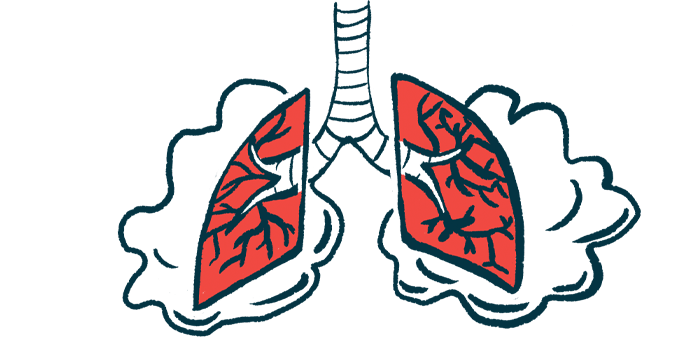Helpful bacteria may inhibit P. aeruginosa’s harmful effects
Two ways shown how commensal S. parasanguinis may offer protection
Written by |

Bacteria called Streptococcus parasanguinis may help inhibit the harmful effects of a Pseudomonas aeruginosa infection in the lungs of cystic fibrosis (CF) patients by modulating inflammation and increasing production of a metabolite called nitrite, recent preclinical research suggests.
Previous research has linked these beneficial, or commensal, bacteria to better outcomes in CF patients. Researchers believe it could be a promising avenue for treating the lung infections that often cause respiratory declines in CF.
“This work illustrates that the commensal S. parasanguinis may provide protection from P. aeruginosa in the airway through immunomodulation and potentially nitrite induction,” the scientists wrote in “An oral commensal attenuates Pseudomonas aeruginosa-induced airway inflammation and modulates nitrite flux in respiratory epithelium,” which was published in Microbiology Spectrum.
A buildup of thick, sticky mucus in the lungs of people with CF creates an environment where it’s easy for a diverse array of bacteria to grow. CF patients often have chronic lung infections, especially ones caused by P. aeruginosa bacteria, leading to worsening lung function.
How commensal bacteria counter lung infections in CF
The mouth is host to many bacterial species that don’t cause disease in humans. Certain commensal bacteria, particularly those of the streptococci variety, can travel to the lungs, where they’ve been linked to improved lung function and a lower burden from harmful bacteria in CF.
How the bacteria do this isn’t fully known, and are likely species-or strain-specific, according to the researchers.
In previous experiments, scientists showed that S.parasanguinis could inhibit P. aeruginosa. Its effects were dependent on two metabolites, nitrite and hydrogen peroxide (H2O2), which react together to produce reactive nitrogen intermediates, or RNI, a molecule with antimicrobial properties.
“Thus, antagonism [inhibition] of P. aeruginosa through RNI may be a mechanism that explains why oral commensal streptococci are correlated with improved outcomes in [people with CF],” wrote the researchers, who investigated in the present study the mechanisms by which S. parasanguinis may be beneficial against CF. They speculated that, along with RNI, the bacteria may temper immune responses to prevent the harmful effects of P. aeruginosa.
In otherwise healthy rats with a P. aeruginosa lung infection, adding S. parasanguinis, nitrite, or both, didn’t influence the bacterial burden of P. aeruginosa. But S. parasanguinis was associated with a reduction of immune cells in the airways, either with or without nitrite. S. parasanguinis and nitrite were each also associated with reductions in certain P. aeruginosa-induced inflammatory molecules.
The production of pro-inflammatory molecules was lower when the ratio of S. parasanguinis to P. aeruginosa was higher.
The findings indicate, “an alternative mechanism by which S. parasanguinis may improve outcomes for people with CF is through immunomodulation,” the researchers wrote.
In a cell culture model of CF airway cells, adding S. parasanguinis reduced the bacterial burden of P. aeruginosa. Similar effects were observed in healthy airway cells.
The commensal bacteria were also associated with reductions in a marker of cell damage relative to when only P. aeruginosa was present.
Untreated CF cells produced significantly less nitrite than healthy cells, which were not impacted by P. aeruginosa infections. Adding the commensal bacteria stimulated the CF cells’ production of nitrite, reaching levels similar to the healthy cells, which “may further explain the intricate role commensals have in CF polymicrobial infections,” the researchers wrote. “In summary, our data indicate that S. parasanguinis can safeguard the airway from P. aeruginosa-induced inflammation and damage and also alter [nitrite] production by airway epithelial cells.”
“The improved outcomes in [people with CF] colonized with oral commensal streptococci such as S. parasanguinis may be explained through both microbial antagonism and through modulation of host inflammatory factors,” they said.







